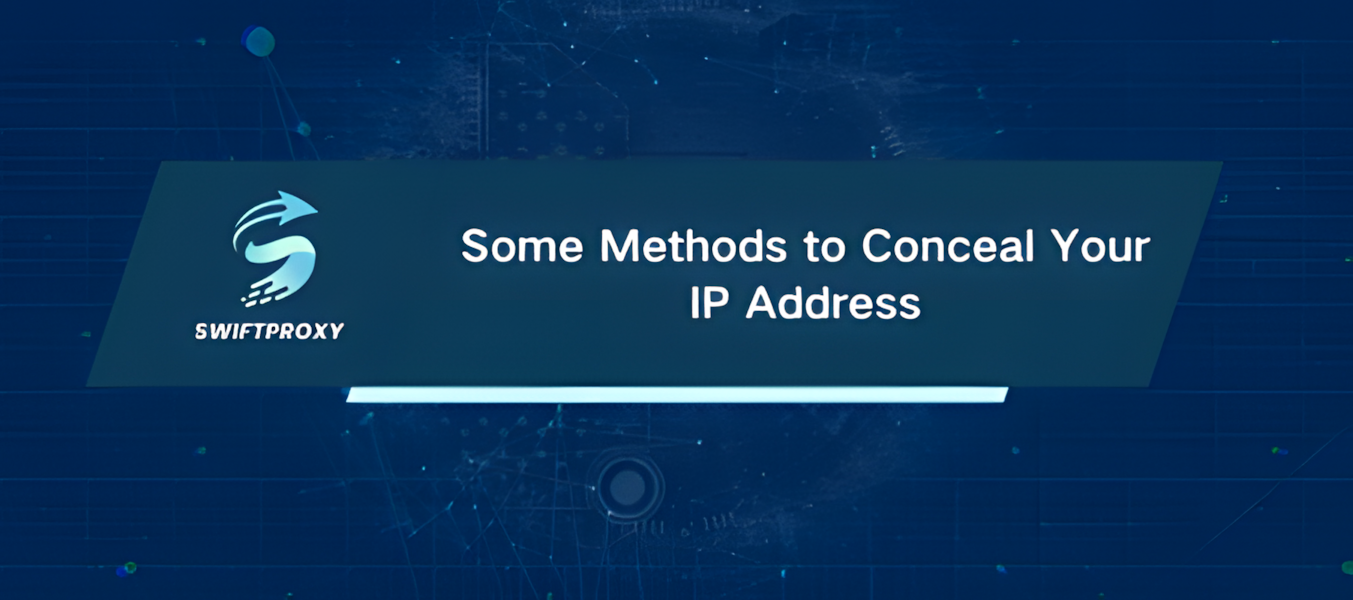Some Methods to Conceal Your IP Address

Every device connected to the internet is assigned an IP address. With billions of IP addresses available worldwide, there is more than enough capacity to support all these devices.
On the internet, IP addresses are publicly visible, allowing others to track your location, identify your internet service provider, and gather various other details. In this article, we'll explore some effective techniques for concealing your IP address.
· Using proxy
A proxy, or proxy server, is a system with its own IP address that serves as a bridge between you and the internet. When you use a proxy server, your internet requests are first sent to the proxy, which then forwards them to the desired online resources. The proxy server receives the response from these web servers and sends it back to you, providing enhanced anonymity by masking your actual IP address.
Proxies also offer extra benefits. Each residential proxy server is linked to a specific location, allowing you to access geo-restricted content even if your own IP address cannot. For example, if you need to view content available only in the USA, you can use a US-based proxy to gain access.
· Choosing VPN
A VPN, or Virtual Private Network, is a commonly used tool for hiding your IP address. It allows you to access websites restricted by region and secures your browsing activity.
When you connect to the internet through a VPN, it serves as an intermediary by hiding your IP address and creating a secure, encrypted tunnel for your data. Websites only see the IP address of the VPN server, not your own. This encryption also prevents these websites from accessing your actual browsing data.
· Utilizing TOR
TOR is open-source software that enables anonymous communication. It is highly effective at concealing your IP address by routing your traffic through several servers before it reaches the target website. While TOR offers a straightforward and free option for hiding your IP address, it can lead to a noticeable slowdown in your internet connection. Therefore, it's important to evaluate whether this solution meets your needs before deciding to use it.
If you're interested in more free options, you might try a private search engine like DuckDuckGo. While DuckDuckGo doesn't hide your IP address, it does ensure that your browsing activity remains private and is not tracked.
· Accessing Mobile Network
To quickly mask your IP address, you can use your mobile network. Activating mobile data will assign you a new IP address, which helps reduce the traceability of your traffic.
Be aware that this approach may lower your connection speeds, deplete your data plan, and transmit data without encryption. However, it can be effective in specific scenarios, such as when your IP address is under attack.
· Connecting to Public Wi-Fi
Connecting your computer to an open Wi-Fi network is a straightforward way to hide your IP address. However, public hotspots come with several risks, such as multiple unchecked connections and heightened security vulnerabilities.
This option should be considered only in exceptional cases when you need to mask your IP address to protect yourself from potential hackers.
Final Thoughts
In summary, there are various methods to hide your IP address, each with its own advantages and limitations. Regardless of which method you choose, it's important to be aware of its benefits and drawbacks.

















































